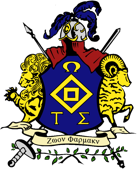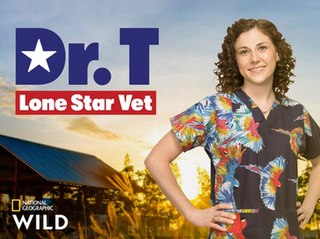Related Research Articles

Veterinary medicine is the branch of medicine that deals with the prevention, management, diagnosis, and treatment of disease, disorder, and injury in non-human animals. The scope of veterinary medicine is wide, covering all animal species, both domesticated and wild, with a wide range of conditions that can affect different species.

A veterinarian (vet) is a medical professional who practices veterinary medicine. They manage a wide range of health conditions and injuries in non-human animals. Along with this, veterinarians also play a role in animal reproduction, health management, conservation, husbandry and breeding and preventive medicine like nutrition, vaccination and parasitic control as well as biosecurity and zoonotic disease surveillance and prevention.

An avian veterinarian is a veterinarian who specializes in treating birds. All veterinarians, upon first qualification from a certified veterinary college, may treat any species. Additional training is required for qualification to become a recognized specialist in the care of birds.

A companion parrot is a parrot kept as a pet that interacts abundantly with its human counterpart. Generally, most species of parrot can make excellent companions, but must be carefully managed around other common pet species like dogs and cats as they might be hostile towards them.

Egg binding occurs in animals, such as reptiles or birds, when an egg takes longer than usual to pass out of the reproductive tract.
Zoological medicine refers to the specialty of veterinary medicine that addresses the care of captive zoo animals, free ranging wildlife species, aquatic animals, birds, reptiles and amphibians, and includes non-domestic companion animals. Zoological medicine incorporates principles of ecology, wildlife conservation, and veterinary medicine, and applies them to wild animals in natural and artificial environments. As a specialty of veterinary medicine in the United States, the American Veterinary Medical Association (AVMA) has recognized the College of Zoological Medicine as the governing body of this specialty field since 1983. As such, zoological medicine is equivalent to other subspecialties of veterinary medicine, which are recognized and governed by their particular colleges.

Fish medicine is the study and treatment of the diseases of fish. Although some practitioners work primarily with aquarium fish, this field also has important applications to fisheries management.

The white-crowned parrot, also known as the white-crowned pionus in aviculture, is a small parrot which is a resident breeding species ranging from eastern Mexico to western Panama.
Sexing or gender identification is the process of determining the sex of an individual animal. Through sexing, biologists and agricultural workers determine the sex of livestock and other animals they work with. The specialized trade of chicken sexing has a particular importance in the poultry industry.
Veterinary anesthesia is anesthesia performed on non-human animals by a veterinarian or a Registered Veterinary Technician. Anesthesia is used for a wider range of circumstances in animals than in people, due to animals' inability to cooperate with certain diagnostic or therapeutic procedures. Veterinary anesthesia includes anesthesia of the major species: dogs, cats, horses, cattle, sheep, goats, and pigs, as well as all other animals requiring veterinary care such as birds, pocket pets, and wildlife.

Richard Raymond Nye is an American former professional baseball player who was a left-handed pitcher in the Major Leagues from 1966–1970.

Veterinary chiropractic, also known as animal chiropractic, is chiropractic for animals – a type of spinal manipulation. Veterinary chiropractors typically treat horses, racing greyhounds, and pets. Veterinary chiropractic is a controversial method due to a lack of evidence as to the efficacy of chiropractic methods. Contrary to traditional medicine, chiropractic therapies are alternative medicine. There is some degree of risk associated with even skilled manipulation in animals as the potential for injury exists with any technique used. The founder of chiropractic, Daniel David Palmer, used the method on animals, partly to challenge claims that the placebo effect was responsible for favorable results in humans. Chiropractic treatment of large animals dates back to the early 1900s. As of 2019, many states in the US provide statutory or regulatory guidelines for the practice of chiropractic and related treatments on animals, generally requiring some form of veterinary involvement.
The Abu Dhabi Falcon Hospital (ADFH) is the first public medical institution exclusively for falcons in the United Arab Emirates. Established by Environment Agency – Abu Dhabi and opened on 3 October 1999, Abu Dhabi Falcon Hospital has become the largest falcon hospital in the UAE and in the world with a patient influx of approximately 11,000 falcons per year. The ADFH describes their mission as a goal "To protect, conserve, research, and promote captive-bred and wild falcons health, wildlife, and falconry tradition. To lead efforts of Abu Dhabi government to improve and protect animal welfare and to increase awareness and responsibility of people for animal welfare as the leading center for animal healthcare and welfare in Abu Dhabi Emirate."
Pacheco's disease is a highly infectious and acute bird disease caused by a species of herpesvirus, Psittacid alphaherpesvirus 1 (PsHV-1). All psittacine species are susceptible to Pacheco's disease, mainly those in zoological collections and aviaries in any geographic regions. Specifically, Pacheco's disease has a high occurrence rate in Amazon parrots, followed by African grey parrots, parrots, macaws, cockatoos and conures. Due to a very high mortality rate within these susceptible species, concerns are brought to companion bird markets and breeders.

Omega Tau Sigma (ΩΤΣ) is an international veterinary medicine professional fraternity. It formed at the University of Pennsylvania School of Veterinary Medicine in 1906.
Journal of Exotic Pet Medicine is a quarterly peer-reviewed medical journal published by Elsevier in cooperation with the Association of Exotic Mammal Veterinarians and the European Association of Avian Veterinarians. It was established in 1992 as Seminars in Avian and Exotic Pet Medicine, obtaining its current title in 2006. The editor-in-chief is Nicola Di Girolamo.

Scott Sims DVM was an American veterinarian and television personality. He is best known for his factual television series Aloha Vet, which aired in 2015.
AniCura AB is a European family of animal hospitals and clinics focused on primary and specialized veterinary care for companion animals. AniCura AB has operations in Sweden, Norway, Denmark, Germany, Austria, Switzerland, the Netherlands, Spain, Italy, France, Belgium, Portugal, Andorra and Poland. The company comprise 450 animal hospitals and clinics that are visited by 3.6 million pets every year, mainly cats and dogs. The total number of employees is approximately 11,000 of whom 4,000 are veterinarians and half have some form of specialist qualification, either national or international specialisation.

The 1929–1930 psittacosis pandemic, also known as the psittacosis outbreak of 1929–1930 and the great parrot fever pandemic, was a series of simultaneous outbreaks of psittacosis which, accelerated by the breeding and transportation of birds in crowded containers for the purpose of trade, was initially seen to have its origin in parrots from South America. It was shortly found to have spread from several species of birds from several countries worldwide to humans between mid 1929 and early 1930. Diagnosed by its clinical features and link to birds, it affected around 750 to 800 people globally, with a mortality of 15%. Its mode of transmission to humans by mouth-to-beak contact or inhaling dried bird secretions and droppings was not known at the time. The cause, Chlamydia psittaci, which usually remains dormant in birds until activated by stress of capture and confinement, was discovered after the pandemic.

Dr. T, Lone Star Vet is an American television series on the Nat Geo Wild network. It premiered on October 13, 2019, and follows Lauren Thielen, the titular Dr. T, and the veterinarians and staff of the Texas Avian & Exotic Animal Hospital located in Grapevine, Texas.
References
- ↑ "Friend or foie gras: Can the infamous delicacy ever be humane?". Grist. By Deena Shanker on 2 Oct 2013
- ↑ Mattie Sue Athan (2008). Guide to the Quaker Parrot. Barron's Educational Series. pp. 50–. ISBN 978-0-7641-3668-9.
- ↑ "Building a good avian library" Archived 2018-03-27 at the Wayback Machine . Winged Wisdom, February 1997.
- ↑ Julie Rach Mancini (11 October 2006). Why Does My Bird Do That: A Guide to Parrot Behavior. John Wiley & Sons. pp. 69–. ISBN 978-0-470-08493-9.
- ↑ Julie Rach Mancini (5 May 2008). Cockatiel: Your Happy Healthy Pet. John Wiley & Sons. pp. 94–. ISBN 978-0-470-36271-6.
- ↑ Cousquer, Glen. ["Book Review:Clinical Avian Medicine"]. Veterinary Times, 2006.
- ↑ Becker, Marty. "Don't jump into bird buying". Spokesman Review. 24 August 2003.
- ↑ Veterinary Forum, volume 12. Forum Publications. 1995.
- ↑ "The Kappa Chapter". Omega Tau Sigma.
- ↑ Gary Null (4 January 2011). Natural Pet Care: How to Improve Your Animal's Quality of Life. Seven Stories Press. pp. 171–. ISBN 978-1-60980-267-7.
- ↑ "Pet birds take their perch as an intelligent alternative". The Palm Beach Post, West Palm Beach, Florida, August 4, 1996, Page 472
- ↑ "Parrots: 8 Things to Know Before You Get One". Vet Street, By Mikkel Becker | October 18, 2013
- ↑ Stephen J. Divers (3 September 2015). Endoscopy, an Issue of Veterinary Clinics of North America: Exotic Animal Practice. Elsevier Health Sciences. pp. 543–. ISBN 978-0-323-39589-2.
- ↑ Brian L. Speer (4 December 2015). Current Therapy in Avian Medicine and Surgery. Elsevier Health Sciences. pp. 7–. ISBN 978-1-4557-4671-2.
- ↑ "Poor Feeding Can Kill Bird". Lakeland Ledger - Jan 14, 2004, page D4
- ↑ Julie Rach Mancini (10 February 2006). Conure: Your Happy Healthy Pet. John Wiley & Sons. pp. 106–. ISBN 978-0-471-79092-1.